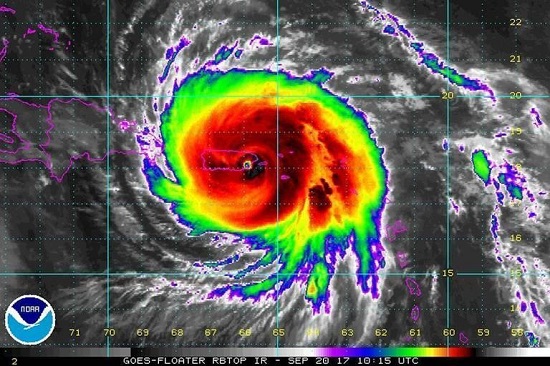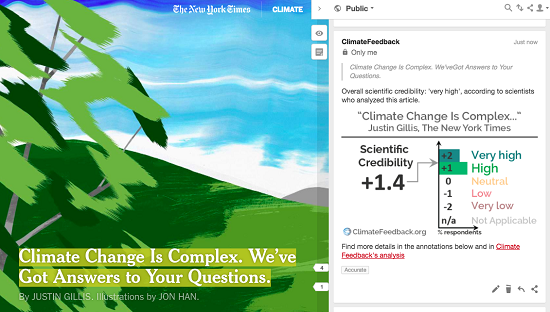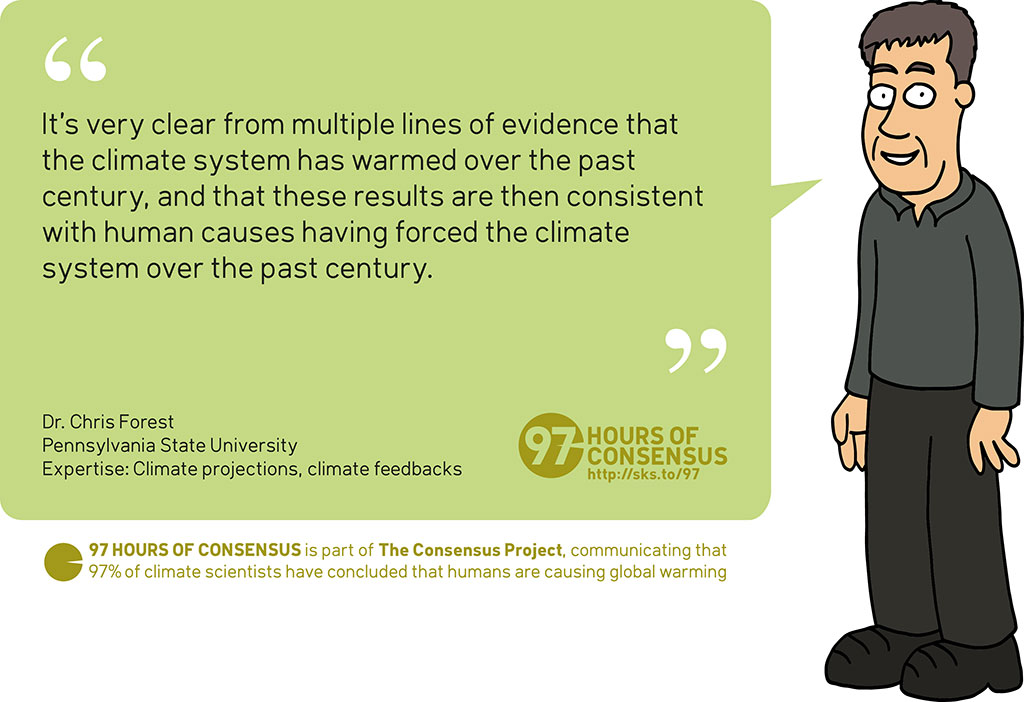
Story of the Week... Toon of the Week... Coming Soon on SkS... Poster of the Week... Climate Feedback Reviews... SkS Week in Review... 97 Hours of Consensus...
September is the most energetic month for hurricanes ever recorded in the Atlantic

The 2017 hurricane season has certainly been one for the record books. Whether it be Harvey’s scale-tipping rains, Irma’s off-the-chart winds, or the sheer number of storms that have spun up, this year is clearly anything but normal.
But how wacky has the weather in the tropics been? For that, meteorologists refer to a figure known as ACE, a measure of every hurricane’s energy put together during its life span. September produced the most ACE in any month on record in the Atlantic Ocean.
ACE, or Accumulated Cyclone Energy, is manifest in stirred-up oceans, steamy downpours, crackling lightning and ferocious winds. The force to instigate these nasty conditions is extracted from the roasting waters of the tropical Atlantic and Caribbean, and transformed into motion through a hurricane’s natural “heat engine.”
To quantify this measure, scientists take into account the strength of the winds within each and every storm, as well as their duration. ACE is calculated every six hours, and a running tally is kept for each storm so long as it sticks around. The measure does not take into account a storm’s size.
September is the most energetic month for hurricanes ever recorded in the Atlantic by Matthew Cappucci, Capital Weather Gang, Washington Post, Sep 27, 2017

Hat tip to Stop Science Denial Facebook page.


Climate Feedback asked its network of scientists to review the article, Climate Change Is Complex. We’ve Got Answers to Your Questions by Justin Gillis, New York Times, Sep 19, 2017.
Thirteen scientists analyzed the article and estimated its overall scientific credibility to be ‘high’ to ‘very high’.
A majority of reviewers tagged the article as: Accurate
Review Summary
This article in The New York Times serves as a primer by briefly answering seventeen basic questions about the cause and consequences of—and possible solutions to—climate change.
Thirteen scientists reviewed the article, and generally found the answers to be highly accurate distillations of the research on that topic. There are only a few instances where answers—mainly to questions about efforts to reduce greenhouse gas emissions—are worded in an imprecise way that could lead to readers misunderstanding the state of scientific knowledge.
New York Times’ “straightforward answers” to common climate questions are accurate, too, Climate Feedback, Sep 28, 2017

Quote derived with author's permission from:
"[I]t's very clear from the observations that the climate system has warmed over the past century, and that these results are then consistent with human causes having forced the climate system over the past century."
High resolution JPEG (1024 pixels wide)
Posted by John Hartz on Sunday, 1 October, 2017
 |
The Skeptical Science website by Skeptical Science is licensed under a Creative Commons Attribution 3.0 Unported License. |